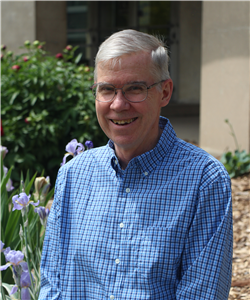I recently attended the annual meeting for the Society for Research on Adolescence where my mentor Reed Larson was invited to reflect on his influential research career in youth development. Reed first got interested in adolescence because he saw it as a critical period of awakening. Yet he noticed that most research focused on problems more than development, and he discovered that youth programs were powerful spaces for this awakening and development to occur. These insights propelled an impressive body of research that has tremendous implications for our work with and on behalf of young people.
Young people’s daily experiences and emotions
With his mentor Mihaly Csikszentmihalyi, Reed began by studying adolescents’ daily experiences and emotions, pioneering the Experience Sampling Method (ESM) where young people were prompted (with beepers back then!) to report on their feelings and the dynamics of their experiences in different domains in their daily lives. He explored their media use, time alone, experience with friends, and school experience.
He discovered that during their typical experiences in school, young people were challenged (deep attention) but not engaged (intrinsically motivated). Conversely during unstructured leisure time, they were engaged but not challenged. The one unique context where young people reported experiencing the rare combination of high levels of challenge and engagement was in organized youth programs (arts, STEM, leadership, sports). He was intrigued.
Youth programs as developmental contexts
This led Reed to develop a series of studies focused on young people’s developmental experiences in youth programs and how staff facilitate these experiences. His research teams identified the types of key experiences that young people have in high-quality youth programs that facilitate their development of skills for teamwork, solving problems, managing emotions, and sustaining motivation in challenging work. He found that project-based youth programs are settings in which Csikszentmihalyi’s "flow" experience serves as a powerful catalyst for developing vital adult skills.
These findings are widely used to design programs and train program staff. They were the basis for a researcher-practitioner collaboration that resulted in a field guide of key youth experiences and staff practices that build valuable social and emotional skills. His groundbreaking research on the lives of young people and the developmental role of youth programs helped to both launch and legitimize the field of positive youth development.
I most appreciate how respectfully rooted Reed’s research is in the direct experiences and accounts of young people. Throughout he has always emphasized that youth are agents or producers of their own development. Are there aspects of his research that speak to or influence you and your work?
-- Kate Walker, Extension professor and specialist in youth work practice
You are welcome to comment on this blog post. We encourage civil discourse, including spirited disagreement. We will delete comments that contain profanity, pornography or hate speech--any remarks that attack or demean people because of their sex, race, ethnic group, etc.--as well as spam.

Collaborating on the Pathways Project will always be a pivotal moment in my career and I will always appreciate Reed for the opportunity to join the team. I experienced the impact of youth programs by working in them early on in my career and the Pathways Project just cemented how critical it was to design high-quality programs that emphasized staff training, skill development, and project-based learning. Thank you, Reed, for everything you've done for the field of PYD!
ReplyDeleteI whole-heartedly agree, Maria. The TYDE and Pathways studies and teams that Reed led had a huge influence on my career. I loved doing practice-based research -- where we were learning from strong programs and practices, and then writing up findings that really matter for the folks doing youth development work.
DeleteI had the joy of hearing Reed's retrospective on his career, along with many others in the room who were able to celebrate his contributions to the field and to the individuals he has mentored over the last several decades. I am so grateful for Reed's insights and the care he demonstrates for his collaborators (both research participants and research assistants as well as partners who join and inspire the work). I've always appreciated how willing Reed is to lean into the complexity of development; he is gifted in the ways he can bring clarity to this complexity without oversimplifying. Part of that is honoring the experiences of the people with whom he does research. Thank you, Reed!
DeleteSo well said, Gina. Reed is a Jedi Master when it comes to mentoring a vast multitude of collaborators, and his ability to synthesize complexity without losing its essence is inspiring.
Delete